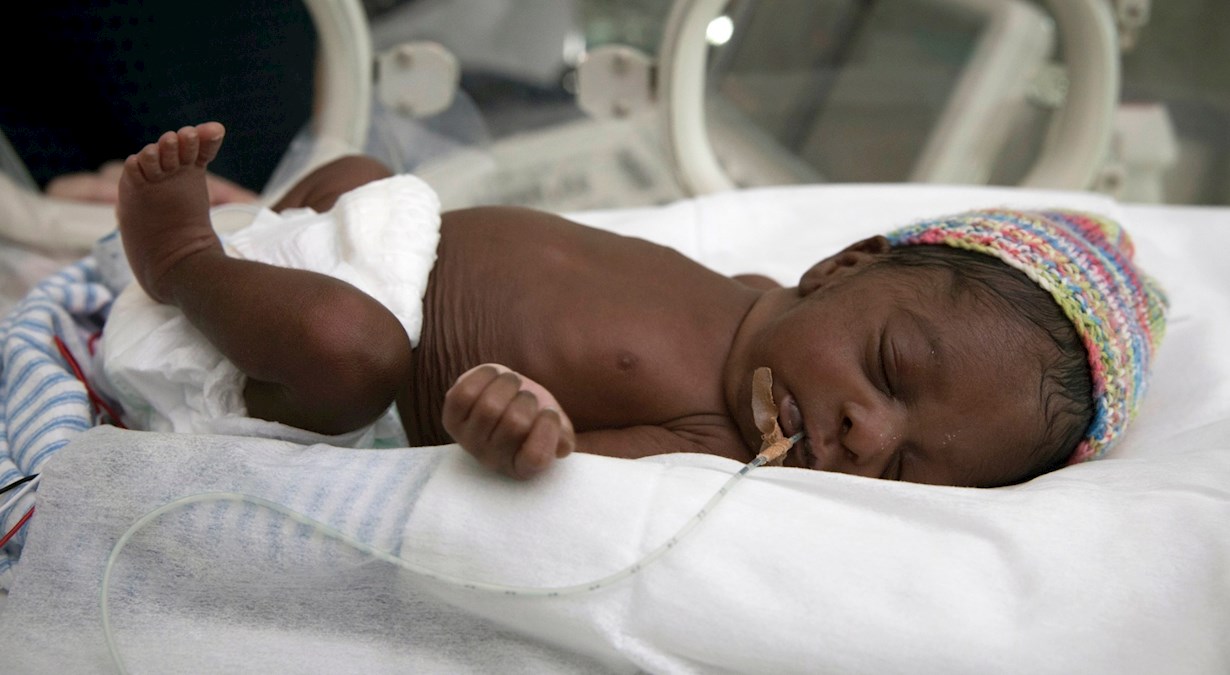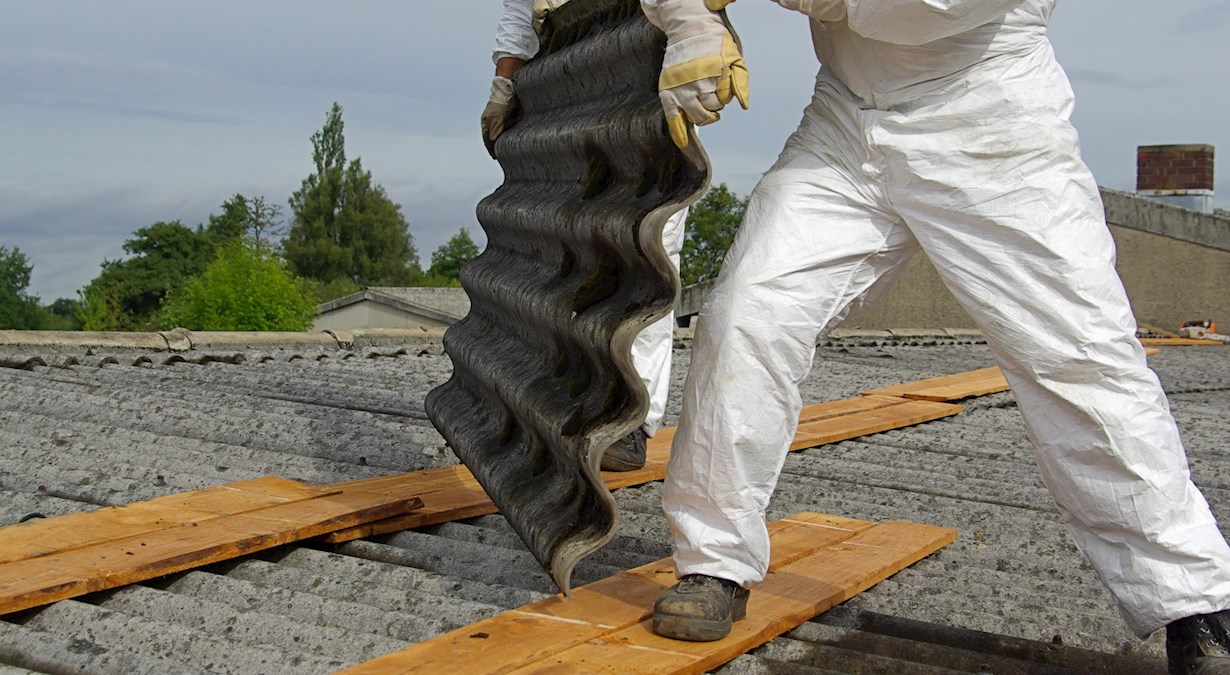FACILITY
Institute for Respiratory Health
Improving the lives of people with a respiratory condition
One in four Australians are living with a chronic respiratory condition, which affects the airways through symptoms such as shortness of breath, tightness of the chest, wheezing and coughing.
The causes and cures of respiratory diseases represent a major research focus within the School of Biomedical Sciences and at the Institute for Respiratory Health.
Our reputation is built upon publications within highly respected scientific journals, developing health policy initiatives and successful peer-reviewed grants. We offer a variety of research opportunities in a range of respiratory health research areas, and are devoted to providing the necessary academic background needed for students interested in biomedical science careers.
We provide several majors which assist students working in respiratory health research, with research groups led by a specialised respiratory health academic.
We also support research training and education in the major respiratory diseases, such as asthma, pleural diseases, lung cancer, mesothelioma, chronic obstructive pulmonary disease, cystic fibrosis, idiopathic fibrosis, epidemiology and microbiology.
Projects
- Molecular and cellular mechanisms driving idiopathic pulmonary fibrosis
-
Pulmonary fibrosis is when scar tissue builds up in the walls of the air sacs within the lungs, known as alveoli, and eventually makes it hard for air to pass through. Pulmonary fibrosis can be mild, severe or, often, life threatening.
What regulates STAT3-mediate fibrosis is not clear, but the Tissue Repair Group, within the Institute for Respiratory Health, focuses on understanding the role of mediators known to activate the cascade pathway.
This means looking at the cell types that may be regulating the mediator response, as well as a possible breakdown in regulation of the naturally occurring inhibitors that normally control the STAT3 response.
In 2016, Associate Professor Cecilia Prêle collaborated with Dr Mark Fear and Professor Fiona Wood from the Burns Injury Group. Together with Emeritus Professor Geoff Laurent (UWA), Professor Darryl Knight (The University of Newcastle) and Professor Robin McAnulty (University College London), they successfully obtained National Health and Medical Research Council (NHMRC) funding to investigate cross talk between epithelial cells and fibroblasts and the role this plays in the progression and development of fibrosis.
PhD candidates interested in working on this project should hold a first class honours degree, demonstrate good communication skills, be able to work as a team, and be available to work full time. For more information, contact Associate Professor Cecilia Prêle.
- Targeting the hedgehog signalling pathway in mesothelioma
-
Mesothelioma is a cancer that develops from the mesothelium, a thin layer of tissue covering many internal organs, and is mostly attributed to asbestos exposure. The mesothelial lining of the lungs is the most commonly affected area.
Increasing evidence indicates the reactivation and aberrant expression of developmental signalling pathways may play a role in the pathogenesis of certain cancers.
Researchers from the Tissue Repair Group, within the Institute for Respiratory Health, are investigating whether the Hedgehog (Hh) pathway is important in the growth of mesothelioma.
The main research aim is to examine a variety of antagonists to identify those with possible therapeutic inhibitory effects on mesothelioma growth and determine the mechanisms underlying the contribution to tumour growth.
The research team is made up of Associate Professor Cecilia Prêle (UWA), Professor Sam Janes (University College London), and Professor Robin McAnulty (University College London). The three academics received funding from a British Lung Foundation for their research.
For more information about the project, contact Associate Professor Steve Mutsaers.
- The role of microRNA in mesothelioma
-
Mesothelioma is a universally fatal malignant cancer, and Australia has one of the world’s highest incidences of mesothelioma per capita. This is due to past mining and exporting of crocidolite (the most carcinogenic type of asbestos), especially from Wittenoom asbestos mining operations.
Mesothelioma has no cure and its current standard therapy is mainly palliative, creating an urgent need to establish new therapeutic tools.
Limited treatment options for patients with mesothelioma means a short median survival time after diagnosis, and clinical management is hampered by the lack of molecular biomarkers for diagnosis or prognosis.
Researchers from the Tissue Repair Group, within the Institute for Respiratory Health, are studying whether short noncoding RNAs, such as microRNA (miRNA), represent useful biomarkers of disease, and whether they play a biological role in mesothelioma and other cancers. This research team is led by Associate Professor Steve Mutsaers.
PhD candidates interested in working on this project should hold a first class honours degree, demonstrate good communication skills, be able to work as a team, and be available to work full time. For more information, contact Associate Professor Steve Mutsaers.
- The effect of fibroblast growth factor on anti-tumour immunity in mesothelioma
-
Researchers from the Pleural Medicine Unit, within the Institute for Respiratory Health, employ various in vitro techniques and preclinical models to investigate novel therapies for malignant mesothelioma.
Our recent data strongly implicates Fibroblast Growth Factor 9 (FGF9) as a key target gene in mesothelioma.
We identified FGF9 as a key driver of mesothelioma tumour growth. This appears, in part, to be due to its capacity to reduce the body’s natural anti-tumour response. While anti-FGF9 drugs can reduce tumour size, once treatment ends, the tumour returns.
In this project, the way in which FGF9 influences the immune system is being investigated to improve the effectiveness of anti-FGF9 treatments.
This project is being led by Dr Sally Lansley, with funding from a Cancer Council of WA Project grant, Raine Foundation Priming grant and a Dust Diseases Authority icare™ fellowship. For more information, contact Dr Sally Lansley.
- Using bacteria as novel anti-mesothelioma agents
-
The anti-cancer properties of bacteria have been used as novel treatments for some cancers with great success. For example, bladder cancers resistant to all other therapies can be successfully treated using a bacterium associated with tuberculosis as standard treatment.
The use of bacteria or their products presents an attractive approach in pleural mesothelioma, as there is strong evidence to suggest the development of an infection in the pleural space may increase survival in these patients.
Studies capitalising on this phenomenon are urgently needed to determine whether bacteria can be used as effective anti-mesothelioma agents.
Researchers from the Pleural Medicine Unit, within the Institute for Respiratory Health, have shown strong preliminary data indicating bacteria can potently kill tumour cells derived from patients with mesothelioma.
We will build on our novel findings by testing how efficiently bacteria can kill mesothelioma cells, and how they achieve this, using cells and bacteria from a large cohort of patients.
We will also determine the efficacy of bacterial therapy in our preclinical models of mesothelioma to determine whether this approach can decrease tumour size, increase survival, or even promote cures.
Our research team is led by Dr Sally Lansley, and any PhD students interested in working on the project need to be competitive for PhD scholarships, available to work full time and able to work well in a team. For more information, contact Dr Sally Lansley.
- Monocyte chemotactic protein 1 as a novel treatment for mesothelioma and effusion
-
Malignant pleural effusion (MPE) is when an abnormal amount of fluid collects in the pleural space. Most patients (>90 per cent) with mesothelioma will develop a MPE during the course of their disease. MPE is also associated with many other cancers that spread to the chest and affects more than 8000 Australians each year.
Current management of MPE requires invasive procedures to drain the fluid, a third of which are unsuccessful. Significant complications arise following these procedures.
Conventionally, MPE is considered a by-product of tumour development and efforts have focused on the best ways to drain the fluid. Our recent work has shown MPE also has biological effects on tumour growth and treatment responses and in this study we will explore this further.
Monocyte chemotactic protein-1 (MCP-1) plays a role in inflammation and cancer development. We have shown that targeting MCP-1 in animal models of benign pleural disease significantly reduces effusion volumes. We will explore whether reducing effusion volumes in the malignant setting (mesothelioma) will affect effusion volume and composition and tumour growth.
This project has received funding from the Cancer Council of Western Australia and Dust Diseases Authority icare™ Fellowship. Dr Sally Lansley is the project lead and can be contacted for more information.
- The role of T-cell co-inhibitory receptors (PD-1, CTLA-4) in chronic obstructive pulmonary disease
-
Chronic obstructive pulmonary disease (COPD) is a major cause of morbidity and mortality, especially among smokers. COPD is characterised by chronic irreversible inflammation and progressive decline in lung function.
Many COPD patients experience episodes of acute worsening of respiratory symptoms known as exacerbation, which increase the risk of mortality and hospitalisation and are frequently associated with bacterial infections. The causes of these exacerbations are unclear.
Researchers from the Stem Cell Therapy Unit, within the Institute for Respiratory Health, are investigating the causative immune defects so that this disease can be prevented or treated more effectively.
We propose compromised anti-bacterial immune responses in COPD is due to excess T-cell anti-inflammatory signals, and suppressing these signals may improve the bacterial clearance in these patients. We previously found that blockade of the inhibitory receptors, CTLA-4 and PD-1 increased bacteria killing and cytokine production by immune cells from blood.
If we can demonstrate improvement of bacterial killing by immune cells isolated from COPD patients, this will strongly support the further development the treatment of COPD.
Our researchers are collaborating with the Royal Perth Hospital Medical Research Foundation for this project, which is led by Dr Dino Tan.
PhD candidates interested in working on this project should hold a first class honours degree, demonstrate good communication skills, be able to work as a team, and be available to work full time. For more information, contact Dr Dino Tan.
- Protective anti-bacterial responses in chronic obstructive pulmonary disease
-
Chronic Obstructive Pulmonary Disease (COPD) is a progressive chronic lung condition that causes breathlessness and reduced oxygen levels. There are two main types of COPD – emphysema and chronic bronchitis.
Researchers from the Stem Cell Therapy Unit, within the Institute for Respiratory Health, are currently studying the effects of mesenchymal stem cell treatment and the role of exosomes on inflammation and immune cells of COPD patients.
The aim of this ongoing study of non-typeable Haemophilus influenza infection in COPD is to characterise anti-bacterial responses of T-cells and monocytes for patients living with COPD.
For more information, contact Dr Dino Tan.




